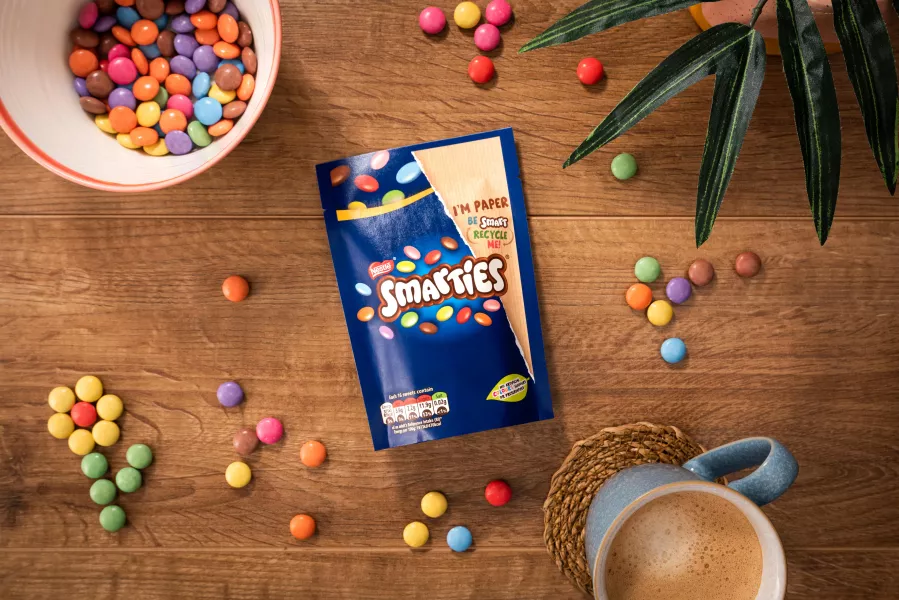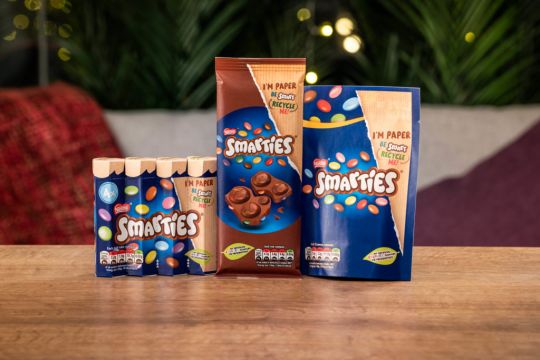Nestle has committed to replacing 250 million plastic Smarties packs with recyclable paper packaging.
Smarties will be the “first global confectionery brand” to make such a switch for all its products worldwide, according to the firm.
Around a quarter of a billion plastic packets are sold annually, making up 90 per cent of the entire Smarties range.
The new designs, which will be in Ireland and the UK by April, include sharing bags, multipacks and giant hexatubes made from coated paper, paper labels or carton board, produced from “sustainably sourced and recyclable material”.
#Smarties is unboxing imagination by switching to recyclable paper packaging – the first global confectionery brand to do so. ♻️🌏
We’re now another step closer to reaching 100% recyclable or reusable packaging by 2025.
Find out more: https://t.co/9LMCkRSRaB#UnboxImagination pic.twitter.com/7n1uxHYCmkAdvertisement— Nestlé (@Nestle) January 26, 2021
Louise Barrett, head of the Nestle Confectionery Product Technology Centre, said: “Developing safe and convenient paper-based solutions for Smarties has required the pioneering of new materials and testing by Nestle packaging experts at our research and development centre for confectionery in York and at the Swiss-based Institute of Packaging Sciences.
“We adapted our existing manufacturing lines to allow for the careful handling that is required for paper, while also ensuring recyclability across all new formats.”
It comes amid Nestle’s wider pledge to make 100 per cent of its packaging of all brands recyclable or reusable by 2025.
The firm has also committed to help tackle climate change by planting hundreds of millions of trees within the next 10 years and increasing the number of “carbon neutral” brands.

Alexander von Maillot, Nestle’s global head of confectionery, said: “Moving Smarties packaging to recyclable paper is one of our key sustainable packaging initiatives in the confectionery category.
“It is a further step in realising Nestle’s ambition to make all of our packaging recyclable or reusable by 2025 and to reduce our use of virgin plastics by one third in the same period.”







